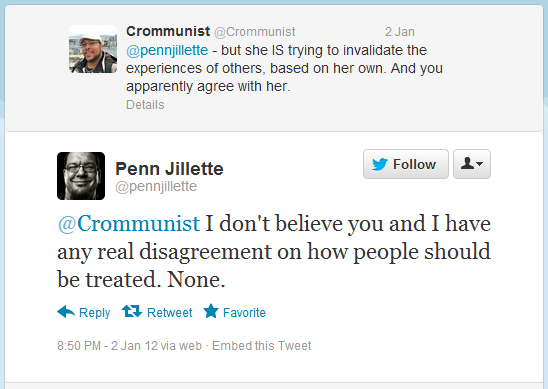This is the second (and hopefully last) post I will feel compelled to write about Atheism+, a group to which I have been assumed (by many) to belong to, but one about which I have thus far said essentially nothing. For those of you who don’t know, Jen McCreight recently stirred things up by announcing that she no longer felt at home with the atheist community at large, and recognized the existence of a subset of the larger atheist community who are focussed on issues that transcend religion per se and moving into larger arenas like anti-racism, anti-misogyny, anti-homophobia, and other so-called “social justice” issues. Because they were still identifying as atheists, but atheists who are interested in more than atheism, they branded this movement “Atheism+”.
The fallout has been typically ridiculous, with concern trolls and misogynist assholes alike flocking to social media to decry this development as a major schism and the death of atheism and a hostile takeover by radical feminists and… take your pick. The backlash against Jen specifically was so severe that she has temporarily but indefinitely suspended her blog – an entirely understandable move that serves only to showcase how at home the contingent of hateful, small-minded jerks feels among the anti-FTB/Skepchick/atheism+/anything-that-even-touches-feminism crowd.
Of course, as I noted this morning, Jen and those who immediately jumped on the Atheism+ bandwagon didn’t create a schism in atheism, they merely identified one that already exists. It’s not the same as dumping your boyfriend because he’s a loser, it’s the recognition that you two weren’t dating in the first place and the fact that he keeps showing up at your house is getting inconvenient and creepy. There are people who want to talk about this ‘social justice’ stuff, and there are those who don’t. Those who don’t can probably be divided into those who are merely apathetic and those who foster an active antipathy, but that’s beside the point I want to make here.
One of the first posts I wrote was a first-pass encapuslation of a maxim I’ve done my best to live by ever since I took my first social psychology course: I am not my ideas. I closed that post by saying this: [Read more…]


